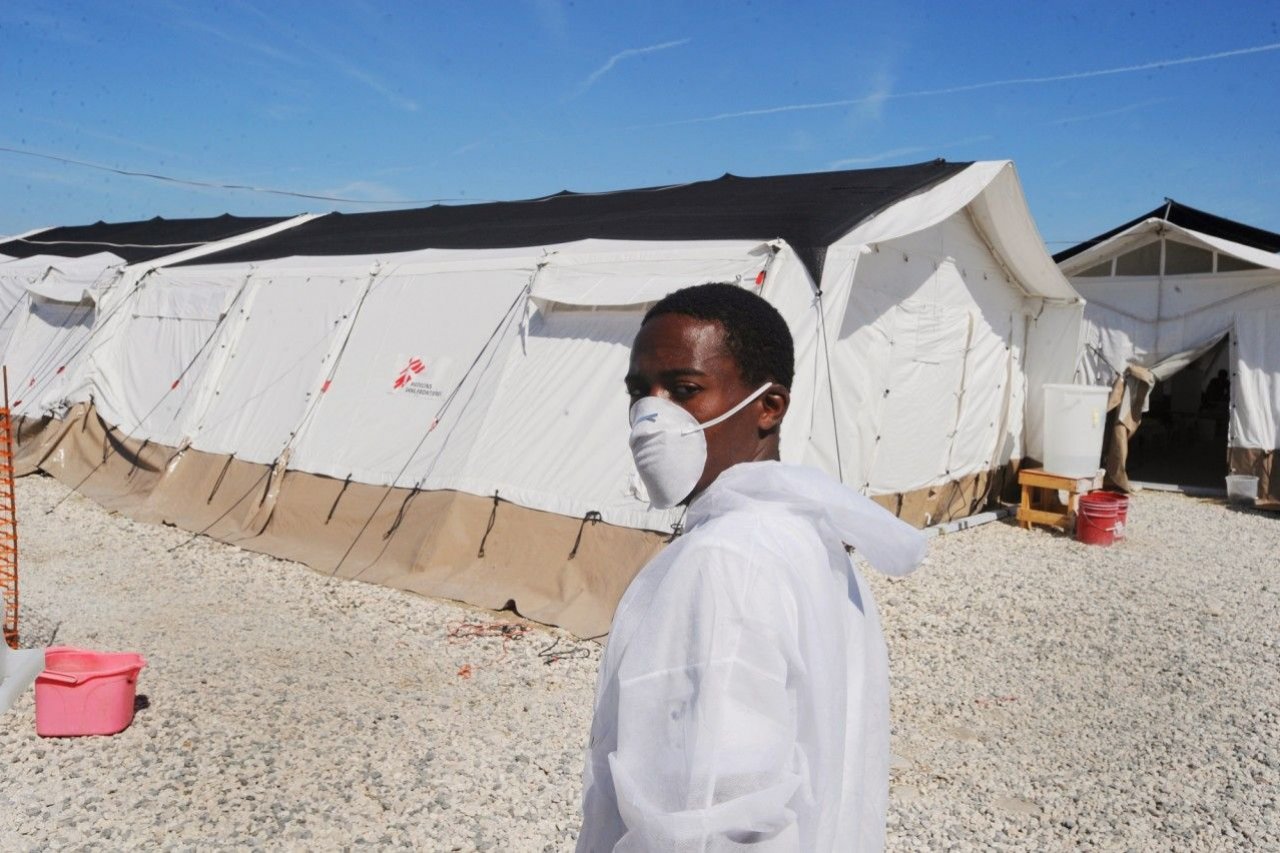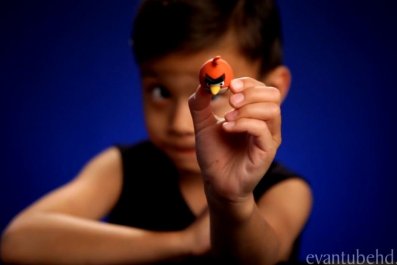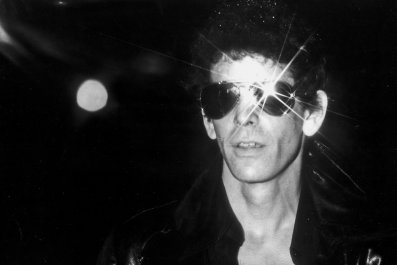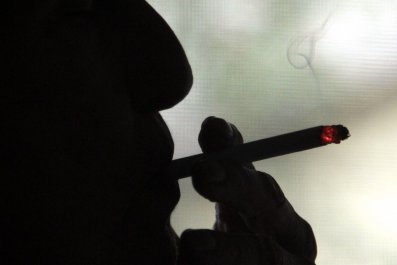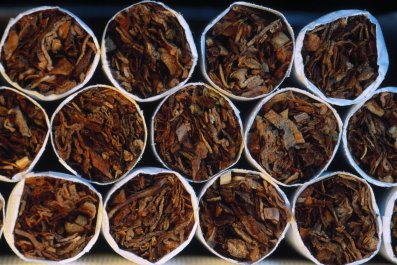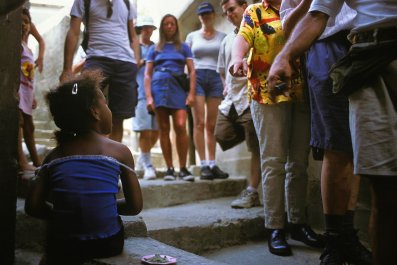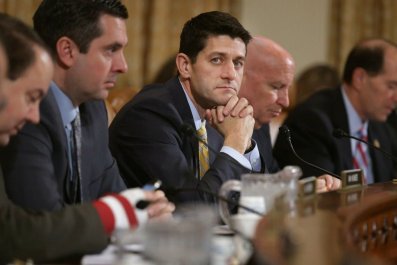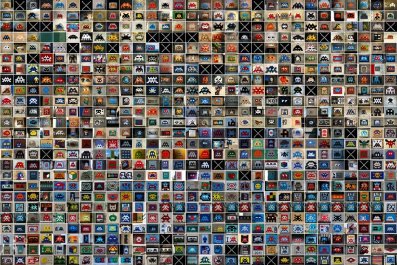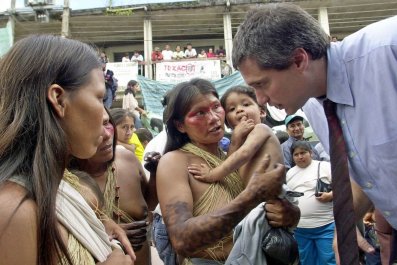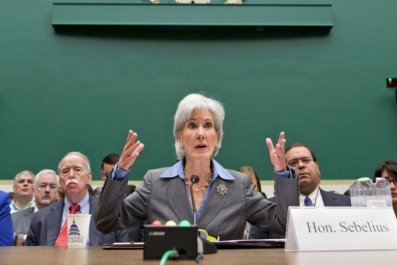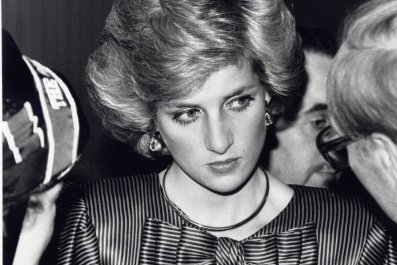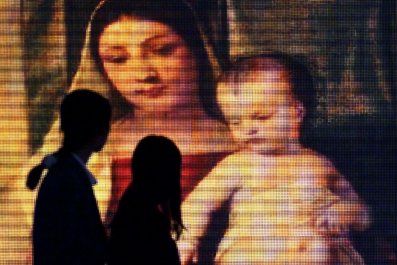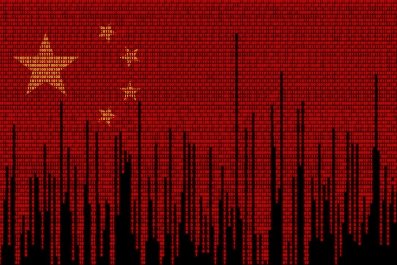For decades, Haiti was plagued by every human-made and natural disaster imaginable. But for more than a century it hasn't recorded an outbreak of cholera, a disease that thrives in an environment where sanitation infrastructure is almost nonexistent and personal hygiene is poor.
Now the United Nations stands accused not only of introducing the disease in the aftermath of the devastating earthquake that hit the country on January 12, 2010, but also of denying its role.
Once merely whispered in the halls of the U.N., the question is increasingly being asked out loud: Will Haiti's cholera epidemic, which has killed more than 8,000 people so far, become for U.N. Secretary-General Ban Ki-moon what the Oil for Food scandal was for his predecessor, Kofi Annan?
Ban was named as defendant in a lawsuit filed in a Manhattan federal court two weeks ago on behalf of Haiti's victims of cholera, which, according to studies, was introduced by U.N. peacekeepers. Yet despite intense internal debate, the U.N. has refused to accept responsibility or compensate the epidemic's victims.
Lawyers from the Boston-based Institution for Justice and Development in Haiti (IJDH), which prepared the class action, attempted to serve papers to the U.N., but that organization's legal department determined that these papers were "not receivable," claiming immunity afforded to international civil servants and world bodies under global conventions.
The lawsuit clearly got the attention of Ban's inner circle. Various U.N.-affiliated agencies are scrambling to raise funds to help Haiti. A U.N. higher-up, Deputy Secretary General Jan Eliasson, is overseeing efforts to help the Haitian government eradicate the disease. And a special coordinator, Pedro Medrano Rojas, was named for the project, shuttling between Haiti and the U.N. headquarters. "We do everything we can to improve the situation [and] demonstrate the compassion that we feel" for Haiti's cholera victims, Eliasson told me.
So far, "an estimated $140 million has been spent or committed by the U.N. system in Haiti to respond to the epidemic since its outbreak," Ban's spokesman, Martin Nesirky, told me.
But the IJDH, the Haiti advocacy group, is far from impressed. The U.N. has been promising to help Haiti for decades, the group's director, Brian Concannon, told me. His group demands UN funding to the tune $2.2 billion to fight the epidemic
There is a major difference between Annan's Oil for Food scandal and Ban's cholera scandal. Annan was one of the main architects of the program set up to help Iraqis but which was soon corrupted by kickbacks and graft, at times tainting officials in Annan's inner circle and his close family.
Ban's accusers, on the other hand, don't fault him personally for the outbreak. Rather, critics point to the U.N.'s feeble response, which initially consisted of blanket denials and which still fails to acknowledge its key role in infecting 700,000 Haitians with cholera.
U.N. sources describe intense internal deliberations about what the official response should be to the allegations, which started appearing shortly after the outbreak first appeared in Haiti in October 2010 and accused Nepali members of the U.N. Stabilization Mission in Haiti (MINUSTAH) of bringing a cholera strain from Nepal to the impoverished Caribbean country, before, through negligence, contaminating a river near their military camp.
Some of Ban's top aides argued that the U.N. should admit responsibility, compensate the victims, and move quickly to help Haiti end the epidemic. Others worried that admitting guilt would endanger future U.N. operations: If Nepalese troops are accused of spreading a disease, they argued, what country would want to ever contribute troops to U.N. peacekeeping operations around the world?
"It was the 'We can't push this aside' people, against the 'This will be the end of peacekeeping' camp," said one official familiar with the internal deliberations, who was not authorized to speak on the record.
Publicly, the U.N. at first simply denied the allegations that the disease originated from a MINUSTAH camp where 1,058 Nepalese troops were deployed in mid-October 2010. And, as the class action notes three years later, Ban's aides even today won't admit culpability. By now, the U.N. simply refuses to talk about the case. "It is not the United Nations's practice to discuss in public the details of, and the response to, claims filed against the Organization," says Nesirky, adding nevertheless, that Ban's "commitment" to help Haiti won't diminish.
But Ban's "cover-up," as detractors are calling it, may have contributed to the decision by the Haiti advocacy group to take the matter to court. Concannon, the IJDH director, at first argued with his colleagues against suing. "I said we shouldn't do it," he told me. He changed his mind, he said, once he realized that "not only the U.N. wouldn't take responsibility" for the onset of the epidemic, "but they won't do the things you need to do to eradicate the disease."
Several independent epidemiological reports concluded that the Nepali peacekeepers, infected with a strain of cholera prevalent in south Asia and found specifically in Nepal's Katmandu area but never seen in the Western Hemisphere, contaminated a river near their MINUSTAH camp. The disease then spread quickly. More than 650,000 Haitians got sick. More than 8,000 died.
The IJDH suit cites these reports, including one by an independent panel of experts named by Ban himself in January 2011, two months after the epidemic's onset. Issued on May 4, 2011, that report concluded, "The evidence overwhelmingly supports the conclusion that the source of the Haiti cholera outbreak was due to contamination of the Meille Tributary of the Artibonite River with a pathogen strain of current South Asian type Vibrio cholerae as a result of human activity."
Nevertheless, a task force that was quickly assembled by the U.N. to evaluate the findings concluded that the panel's report "does not present any conclusive scientific evidence linking the outbreak" to the peacekeepers and that "anyone carrying the relevant strain of the disease in the area could have introduced the bacteria into the river."
The refusal to accept responsibility and compensate victims angers a number of distinguished past and current U.N. officials. Annan's former head of peacekeeping, Jean Marie Guenhenno, who now teaches at Columbia University, tweeted in August, "Peacekeepers have done a lot for Haiti, but U.N. needs to come clean on cholera crisis." The current U.N. human rights chief, Navi Pilay, recently recommended that Haitians "who suffered as a result of that cholera be provided with compensation."
Concannon and his colleagues at first prepared a suit on behalf of all of Haiti's cholera victims, demanding $50,000 for each of the sick and $100,000 for each of the dead. That would add up to $35 billion. But the current suit is on behalf of five representative families of victims, demanding compensation to be decided later, as well as a U.N. apology, and - most importantly - a $2.2 billion U.N. contribution to the Haitian government's efforts to eradicate the epidemic.
The U.N.'s claim of immunity may, technically, be argued by lawyers for the U.S. administration, as representatives of the U.N. member state in which the lawsuit is heard. Countering the U.N.'s reliance on conventions providing immunity, the complaint cites alleged violations of a pact between the U.N. peacekeepers and the government of Haiti. If they lose, Concannon says, they may appeal. They may also try suing in Europe or elsewhere.
And even if the lawsuit is rejected by a U.S. court, the case may haunt the organization for months, even years to come. As one U.N. veteran told me, Ban's life would have been so much easier had he immediately acknowledged culpability and moved on.
Follow Benny Avni on Twitter: @bennyavni



